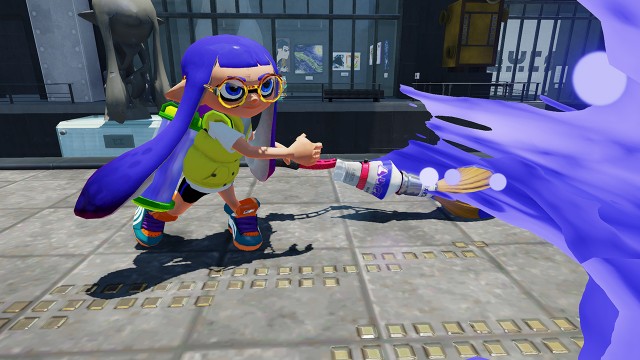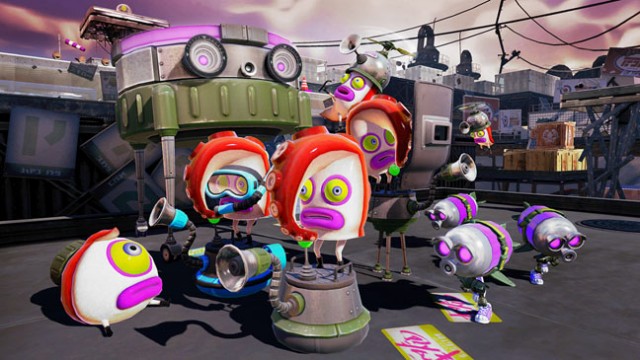It’s been a long time since anything has come around like Splatoon. After a single year, the title has proven to be both endearing and enduring. With a dedicated user base and continuously steady sales, the title has proven to be a far bigger success than anyone could have imagined, especially on a system like Wii U.
Splatoon seems to defy the standards we expect from video games, and Nintendo games in particular. Since its inception, online gaming has greatly increased the replay value of a number of titles, but even then, eventually, the game goes back on the shelf. Nintendo systems have always had exceptions like Super Smash Bros., Mario Kart, and GoldenEye, but Splatoon boasts an online fan base that seems more passionate and dedicated than any Nintendo release has seen in quite some time. Fortunately for Nintendo, that fan base doesn’t seem ready to put the game back on the shelf, either. According to Nintendo, a Splatfest held in April in Japan attracted more than fifty percent of Splatoon owners, setting a record for participants. That’s an amazing accomplishment for a game that released nearly a year prior.
Of course, Splatoon’s success is all the more impressive given Wii U’s hardware struggles; the system has had historically low sales for a Nintendo console. While titles like Super Mario 3D World and Mario Kart 8 kept the console’s software sales afloat before Splatoon’s release, it’s unsurprising to see Mario games selling well: they’re a key reason people buy Nintendo systems. Splatoon’s success is different: a brand-new franchise can be a tough sell even under the best of circumstances. There’s a reason new video game franchises don’t seem to crop up at the same rate they once did.

Splatoon’s success will inevitably result in sequels. With its charming world and addictive gameplay, it has all the ingredients to become a top-tier Nintendo franchise. Despite this, the company clearly seemed taken aback by the game’s success. It’s telling that merchandise supporting the game is only now starting to trickle in. The likelihood that Splatoon will continue to grow is good news for fans, but the lesson Nintendo and other publishers should learn from the title’s success is that there is still room in the industry for new games and innovations. In a generation that has seen some of the greatest innovators in the industry quieted by a surge in development costs, and pressure by the mobile industry, Splatoon should stand as a shining example that gamers will still embrace titles that seek to innovate.
For the industry, there were few periods as innovative as the N64/PS1/Dreamcast era. In a way, Splatoon feels like the type of franchise that harkens back to that particular time period. The game’s online features could never have been implemented back then, but it feels like the kind of ingenuity that gave gamers titles like Jet Set Radio. While the game has a charm that is unmistakably Nintendo, the game’s artistic direction feels reminiscent of the types of new IP that debuted on the Dreamcast and the original PlayStation. It’s no wonder fans latched on.

Part of the reason Splatoon has also managed to keep the interest of gamers is through Nintendo’s dedication to the title. Over the last year, Splatoon has seen a number of updates to the available weapons, maps, and gear, and it’s safe to assume this has played a role in maintaining interest. DLC is certainly nothing new to the industry, but Splatoon’s updates have all been released free of charge. In an era where fans routinely debate the fairness of DLC timing and pricing, Splatoon’s model is a welcome change.
As the release of the Nintendo NX looms ever closer, the legacy of the company’s current console begins to take shape. It would be easy to paint Wii U as a failure, but Splatoon may have completely changed the way the console is remembered. It’s hard to consider the system a failure when it introduced Nintendo’s biggest new IP since Pokémon. With Splatoon, Nintendo gave fans something that plays against the standards gamers have come to expect not only from the industry, but Nintendo itself. There are a number of reasons Splatoon has been such a success. It’s addictive, deep, family friendly, and charming, and with Nintendo’s dedication to releasing additional content, its success should really come as no surprise. Hopefully the rest of the industry is taking notes.




 ShareThis
ShareThis






